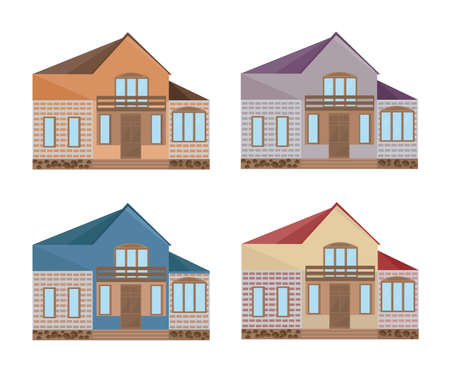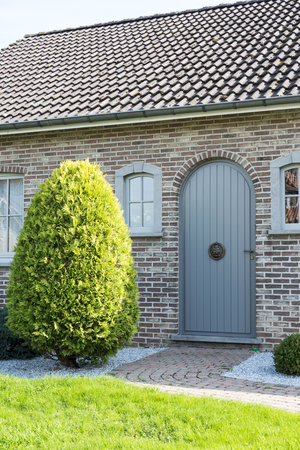Introduction to Garage Conversions
Garage conversions have become an increasingly popular remodeling project among homeowners in the United States. At their core, garage conversions involve transforming an existing attached or detached garage space into a functional living area, such as a bedroom, home office, gym, or accessory dwelling unit (ADU). This type of renovation enables property owners to maximize usable square footage without the need for costly additions or new construction. In the U.S., the most common types of garage conversions include single-car and two-car garages converted into guest suites, rental units, or expanded family rooms. Homeowners are often motivated to undertake these projects to accommodate growing families, generate rental income, create dedicated work-from-home spaces, or simply enhance their lifestyle. As housing costs and demand for flexible living solutions rise across American cities and suburbs alike, garage conversions present a practical option for increasing a homes functionality and potential value.
Impact on Home Resale Value
Converting a garage into livable space can have a significant impact on a homes resale value, but the effect varies greatly depending on local real estate trends and buyer expectations. In some markets, especially urban areas where square footage is at a premium, adding an extra bedroom, office, or family room by converting the garage may boost your home’s value. However, in suburban or rural neighborhoods where buyers prioritize ample parking and storage, the lack of a dedicated garage can actually deter potential buyers and reduce overall resale value.
Regional Market Trends
To better understand how garage conversions are perceived across different American neighborhoods, its important to analyze regional differences:
| Region | Typical Buyer Preference | Effect of Garage Conversion |
|---|---|---|
| Urban Areas (e.g., San Francisco, NYC) | Living space is prioritized over parking; limited street parking raises value for added rooms. | Positive to Neutral: Can increase property value if conversion is well-executed. |
| Suburban Areas (e.g., Dallas suburbs, Orange County) | Buyers expect at least one enclosed garage for vehicles and storage. | Neutral to Negative: May lower value due to reduced appeal for families and commuters. |
| Rural Areas (e.g., Midwest small towns) | Large lots with multiple vehicles; garages seen as essential for equipment and protection from weather. | Negative: Conversion often leads to decreased interest and offers below market average. |
Buyer Expectations in Different Neighborhoods
The decision to convert a garage should always consider the target demographic of potential buyers. In neighborhoods with high demand for rental units or multigenerational living, conversions that add bedrooms or independent living spaces may yield a positive return on investment. Conversely, in established family-oriented communities, sacrificing garage space can make your home less competitive compared to others with traditional amenities.
Considerations Before Converting
- HOA Regulations: Some homeowners associations restrict exterior changes or require at least one enclosed parking spot.
- Zoning Laws: Local ordinances may limit conversions or require permits for legal rental units.
- Quality of Workmanship: Professional-grade insulation, electrical work, and finishes are crucial for resale value retention.
Summary Table: Garage Conversion ROI Factors
| Factor | Positive Influence | Negative Influence |
|---|---|---|
| Neighborhood Type | Lack of off-street parking options; high demand for additional living space. | Sufficient parking/garage space expected as standard amenity. |
| Conversion Quality | Permanently permitted, fully integrated with HVAC and utilities. | Poorly finished or easily reversible conversions. |
| Market Demand Shift | Evolving needs post-pandemic (home offices, ADUs). | No shift in buyer priorities; traditional values prevail. |
The impact of a garage conversion on resale value is ultimately determined by aligning your renovation with neighborhood expectations and ensuring professional execution that adds true functionality to the home.

3. Curb Appeal Considerations
When evaluating how garage conversions influence resale value, its crucial to consider their direct impact on curb appeal. The exterior appearance of a home sets the tone for potential buyers and passersby alike, often shaping first impressions before anyone even steps inside. A well-executed garage conversion can seamlessly blend with the existing architecture, enhancing the homes overall aesthetic and creating a cohesive street view. However, if the conversion is poorly planned or lacks attention to detail—such as mismatched siding, improper window placement, or a noticeable patchwork effect—it can detract significantly from the homes visual harmony.
Integration with Existing Design
One of the primary factors in maintaining strong curb appeal during a garage conversion is ensuring that any exterior modifications match the materials, colors, and architectural style of the original structure. For example, replacing an overhead garage door with a custom facade featuring windows or a front porch that mirrors other homes in the neighborhood can make the conversion feel intentional rather than out of place.
Landscaping and Entryways
Beyond structural changes, thoughtful landscaping and attractive entryways also play a pivotal role. Adding flower beds, walkways, or exterior lighting can soften transitions and draw positive attention to the new space. Conversely, neglecting these details may result in a space that feels disconnected from the rest of the property.
Neighborhood Standards
Its important to recognize that curb appeal isnt just about individual taste; it often hinges on neighborhood standards and expectations. In many American suburbs, garages are a common feature and their absence—or an obvious conversion—can make a property stand out in ways that arent always favorable to prospective buyers. Consulting local real estate trends and considering HOA guidelines can help homeowners avoid negatively impacting resale value through diminished curb appeal.
4. Potential Drawbacks and Limitations
While garage conversions can offer extra living space and boost property functionality, homeowners should be aware of several potential drawbacks that can negatively affect both resale value and curb appeal. These issues can be particularly significant in U.S. neighborhoods where car ownership, local regulations, and architectural consistency are highly valued.
Lost Parking Space
One of the most immediate concerns with converting a garage is the loss of dedicated parking. In many American suburbs and cities, having a secure, weather-protected place for vehicles is considered a major asset. The absence of a garage can deter prospective buyers—especially those who rely on personal vehicles or have multiple cars. The following table illustrates typical buyer preferences regarding parking availability:
| Parking Option | Buyer Appeal |
|---|---|
| Attached Garage | High |
| Driveway Only | Moderate |
| No Off-Street Parking | Low |
Zoning Regulations and Permit Issues
Garage conversions often require compliance with local zoning laws, HOA restrictions, and building codes. Failure to obtain necessary permits or follow code requirements can lead to fines, forced removal of the conversion, or complications during resale. Additionally, unpermitted work may reduce buyer confidence and decrease the home’s appraised value.
Mismatched Architectural Styles
If the conversion does not seamlessly integrate with the rest of the home’s exterior or interior design, it can negatively impact curb appeal. Poorly executed facades, mismatched materials, or awkward layouts may make the property stand out for the wrong reasons in a neighborhood with consistent aesthetics. This mismatch can cause buyers to question the quality and longevity of the renovation.
Summary Table: Potential Drawbacks Impacting Resale Value
| Drawback | Impact on Resale/Desirability |
|---|---|
| Lost Parking | Lowers buyer pool; reduces value in car-dependent areas |
| Zoning/Permit Issues | Can delay or derail sales; may necessitate costly corrections |
| Poor Aesthetic Integration | Lowers curb appeal; makes property less attractive in uniform neighborhoods |
Conclusion on Limitations
It’s essential for homeowners to weigh these potential negatives against the benefits before committing to a garage conversion. Careful planning, adherence to regulations, and thoughtful design choices can help mitigate risks—but ignoring these factors could ultimately hurt both resale prospects and neighborhood perception.
5. Best Practices for Maximizing ROI
Technical and Design Recommendations for U.S. Homeowners
When considering a garage conversion, following best practices is crucial to ensuring the project adds significant value to your home and blends seamlessly with local architecture. Here are key strategies to maximize return on investment (ROI):
Comply With Local Building Codes and Permitting
Before starting any conversion, consult your city or county planning department. In most U.S. jurisdictions, converting a garage into livable space requires permits and adherence to building codes—especially regarding insulation, fire safety, egress windows, HVAC, and electrical systems. Non-compliance can negatively impact resale value and even result in costly fines or forced demolition.
Seamless Integration With Existing Architecture
To maintain curb appeal, match exterior finishes—such as siding, brickwork, roofing, and paint colors—to those of the main house. If possible, replicate window styles and trim details. Avoid conversions that appear tacked-on or out of sync with neighborhood aesthetics; such mismatches can deter buyers in style-conscious markets.
Prioritize Flexible and Functional Layouts
Design the converted space to be easily adaptable. For example, an open-plan room can serve as a guest suite, home office, or playroom. Incorporate features like closet space, ample electrical outlets, and soundproofing to broaden its appeal. This flexibility increases perceived value among a wider range of potential buyers.
Upgrade Insulation and Climate Control
Garages are typically not built to the same energy standards as living spaces. Invest in high-quality wall, ceiling, and floor insulation along with efficient heating/cooling solutions. Consider mini-split HVAC systems for independent climate control. Properly insulated conversions are more comfortable year-round and favored by buyers seeking energy efficiency.
Address Parking Solutions
Losing a garage may reduce parking options—a major concern for many American homeowners. Offset this by expanding driveway space or adding a carport if lot size allows. Demonstrating that the property still meets practical parking needs helps preserve both resale value and buyer interest.
Summary
By approaching garage conversions with careful planning and attention to technical details—while respecting local architectural norms—homeowners can ensure their investment enhances both resale value and curb appeal in the competitive U.S. real estate market.
6. Conclusion and Key Takeaways
In conclusion, garage conversions can have a significant impact on both the resale value and curb appeal of your home. As we’ve discussed, converting a garage into living space offers added functionality and can increase your property’s square footage, which is appealing to many buyers. However, this decision is not without trade-offs. Removing dedicated garage parking may deter some potential buyers, especially in neighborhoods where off-street parking is at a premium. To maximize resale value, homeowners should carefully consider local market trends, neighborhood expectations, and the quality of the conversion work.
From a curb appeal standpoint, it’s crucial to ensure that the exterior design of the conversion seamlessly blends with the rest of your home. High-quality materials, professional finishes, and thoughtful landscaping can make a converted garage look like an intentional part of your property rather than an afterthought. Always consult with real estate professionals and experienced contractors before proceeding.
Ultimately, the key takeaway for homeowners is to balance personal needs with long-term investment considerations. If you plan to stay in your home for many years and need extra living space, a well-executed garage conversion can be highly rewarding. However, if you anticipate selling within a few years, weigh the potential impact on resale value and curb appeal before moving forward. Strategic planning and attention to detail will help ensure that your garage conversion adds both practical value and aesthetic appeal to your home.


